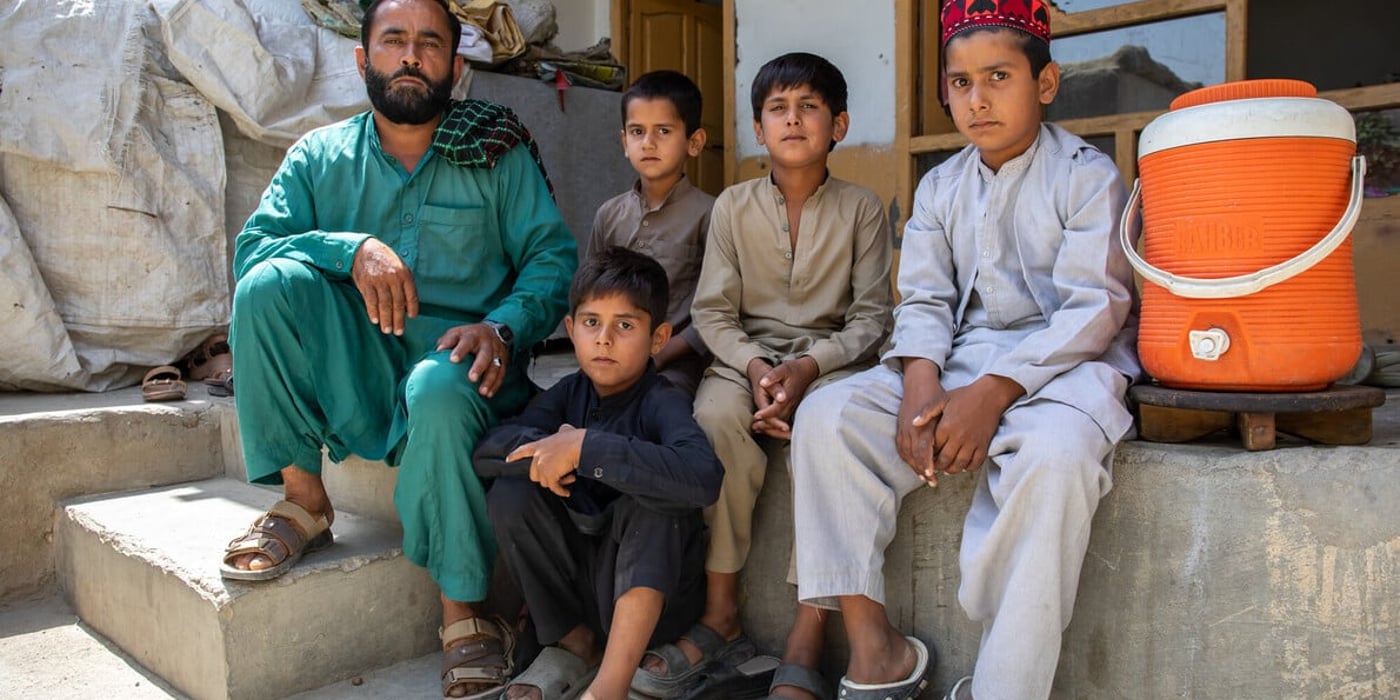The Norwegian Refugee Council (NRC) is on the ground, doing everything we can to help people feed their families, find shelter and access clean water – as well as protecting those who have been displaced, especially vulnerable women and children.
What’s happening in Afghanistan?
Although the country-wide war ended in 2021, this violence – together with frequent droughts, flooding and back-to-back earthquakes in October 2023 – has caused 6.7 million people to flee the country and 4.2 million people to seek refuge elsewhere in Afghanistan.
These displaced families now live in precarious situations and extreme poverty. Across the country, unemployment is widespread and food costs are soaring. As a result, 40 per cent of the population are suffering acute levels of food insecurity, with 8 per cent in an emergency state.
This already dire situation has been made worse by continued international sanctions and Pakistan's decision to deport 1.7 million undocumented Afghans back to Afghanistan in 2023.
Our response
We’re working with our partners in the following areas:
- Water, sanitation and hygiene constructing, repairing and maintaining safe water supplies, latrines and bathing facilities, as well as helping to tackle deadly waterborne diseases.
- Shelter and settlements – providing people with temporary shelter during emergencies, helping them withstand the winter cold, and constructing or repairing more permanent places to live.
- Livelihoods and food security – meeting families’ immediate food needs, as well as improving food production systems, strengthening local markets and helping people to sustain their livelihoods.
- Education – providing community-based education for out-of-school children, training young people in vital life skills, and distributing much-needed teaching materials.
- Protection from violence – running community safety programmes and protection services, and encouraging positive thought leadership.
- Information, counselling and legal assistance – helping people obtain identity documentation, get advice on employment law and claim housing, land and property rights.
- Emergency response – responding to disasters and the effects of climate change by providing emergency supplies and cash assistance, as well as supporting emergency preparedness.
Our operations
NRC office established: 2003
Areas of operation: Kabul (country office), Badghis, Balkh, Faryab, Herat, Kabul, Kandahar, Khost, Kunduz, Nangarhar, Sar-e-pul, Uruzgan, Zabul
Country Director: Neil Turner
Contact: af-info@nrc.no

Our impact
In 2024, we assisted 215,961 people through our programmes in Afghanistan:
-
28,629Education
-
10,896Livelihoods and food security
-
36,833Shelter and settlements
-
34,614Protection from violence
-
75,140Information, counselling and legal assistance
-
32,470Water, sanitation and hygiene
-
5,946Other activities
Note: some people received more than one type of assistance.








